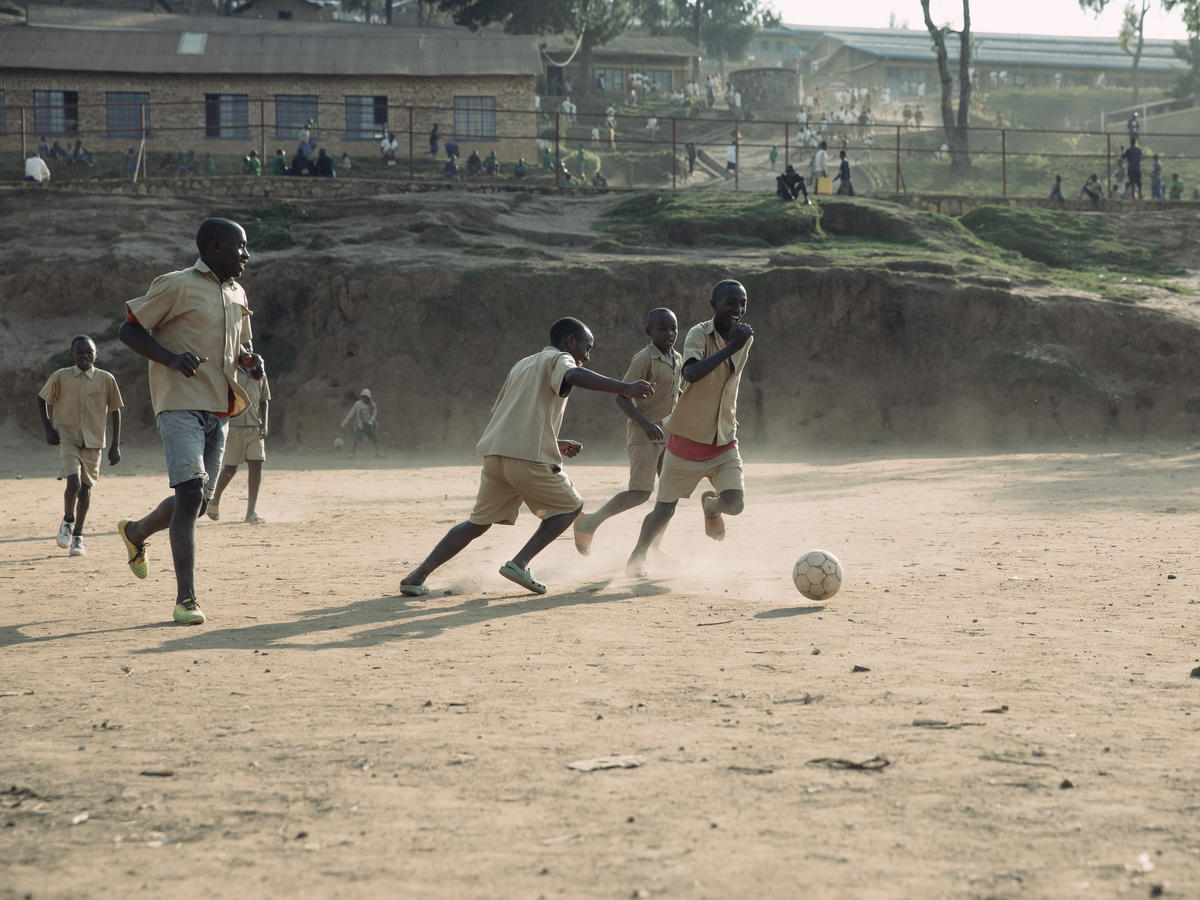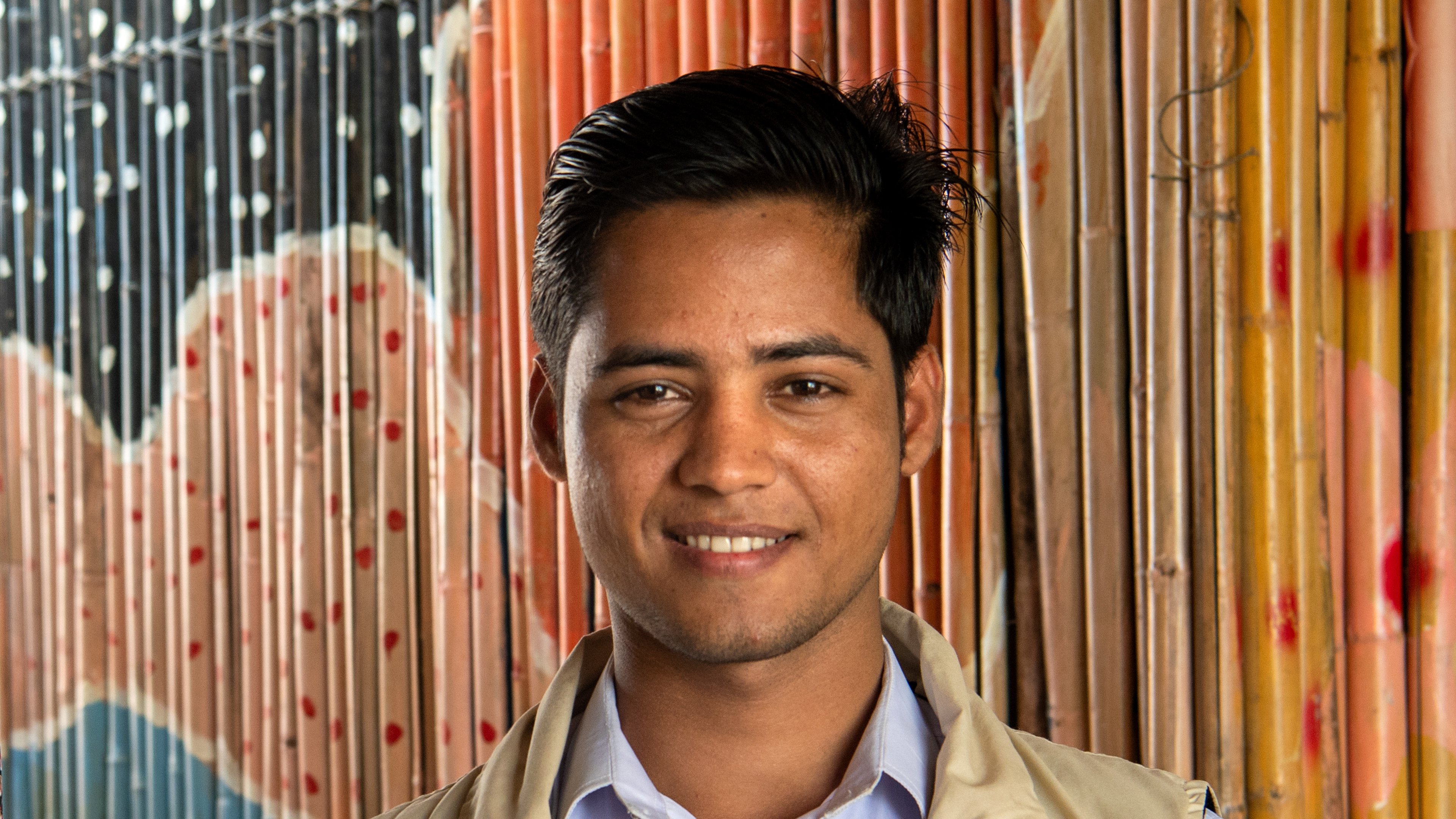Mexico appoints child protection officers to help young migrants
Mexico appoints child protection officers to help young migrants

MEXICO CITY, Mexico, March 27 (UNHCR) - The Mexican government's National Institute of Migration (NIM) has appointed 68 child protection officers as part of a pilot project aimed at addressing the needs of unaccompanied young migrants arriving in Mexico.
The UN refugee agency has helped train the officers during a series of courses held in Mexico City earlier this month. Representatives from the Mexican Commission of Aid to Refugees, the Family Development System and UNHCR sister agencies, the UN Children's Fund (UNICEF) and the International Organization for Migration (IOM), also took part.
"For UNHCR it was crucial to participate in the instruction of these officials, particularly by making them familiar with the procedures on how to deal with unaccompanied minors who may be in need of international protection as well as helping build the Mexican government's capacity to protect asylum seekers and refugees," said Marion Hoffmann, UNHCR's regional representative.
According to the NIM, about 5 percent of the undocumented migrants intercepted at the southern border of Mexico in 2006 were unaccompanied or separated minors. Last year, the immigration authorities identified 7,064 child and teenage migrants - mainly from Central America - in different parts of the country, 5,983 of whom were travelling alone.
As the number of unaccompanied or separated minors caught in the mixed migration corridor from Central America to Mexico and North America grows, national and international organizations are stepping up efforts to protect these minors, who are often the victims of labour and sexual exploitation.
Hoffmann said UNHCR has long believed it was vital that adequate mechanisms were established to identify minors who might be in need of international protection. She noted that this month's training programme was the first of a series of permanent UNHCR-supported courses planned for migration officials.
Oliver Bush, director of inter-institutional relations at the NIM, said the child protection officers would be responsible for protecting those identified as unaccompanied minors until their migratory status was regularized.
"The agents will determine the type of attention that the minors will receive. For example, victims of trafficking who can return home safely need a different kind of treatment than children who seek asylum and who will be referred to the refugee procedure," he noted.
Bush said part of the course focused on refugees and asylum seekers, adding that "most children would not know that they have the right to apply for asylum and, if they did, they would not know how to do it.
"It is very important to train our agents so that they can inform the children about their rights, detect whether they are asylum seekers, and let them know how to present their asylum application before the Mexican Commission of Aid to Refugees." UNHCR's involvement was important in explaining such issues.
In May 2006, the UNHCR regional office in Mexico implemented a project to assess the protection network available for unaccompanied or separated minors in the southern border region of Mexico. The aim was to identify the needs for international protection and gaps in protection for minors in this frequently transited area.
The study found that some minors who had fled their home countries to escape abuse, violence or ill-treatment ended up becoming the victims of human trafficking rings. UNHCR said the problem, accordingly, required a more comprehensive and cooperative approach.
A year later, the NIM established an inter-institutional dialogue on the issue. UNHCR is an active participant.
By Mariana Echandi in Mexico City, Mexico








